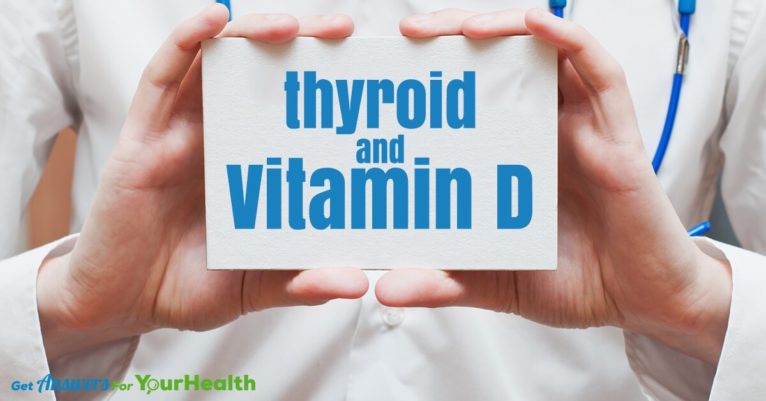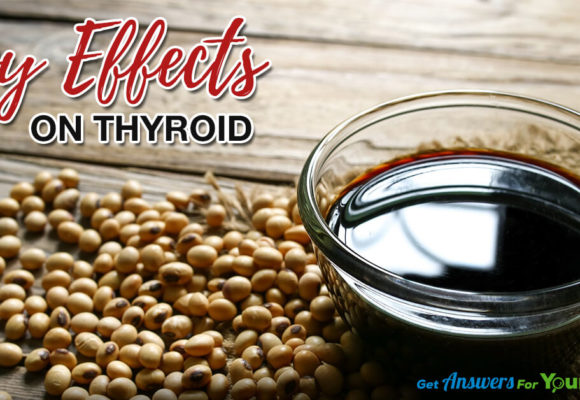1) Grab a FREE copy (Value $14.95) of one of my books Thyroid Symptom Overload
Just pay shipping $7.95 for any US orders. Or, if you want to pay full price plus shipping, order from Amazon :)
2) Take our Thyroid Quiz today and find out what "Thyroid Type" you have
This quiz will help you quickly discover where your symptoms are stemming from.
3) Join Our Thyroid Advocate Membership Site - Natural Thyroid Academy
FREE for a limited time. No credit card required.
4) Work with me and my team privately
Schedule your FREE 15 minute phone consultation and we can find out the best way to help you specifically.
Yes, there is a very legit connection between the two. You may be shocked to know that vitamin D can work on something more than your bones. There is a huge relationship between this very important vitamin and the thyroid gland. Not sure what the connection is? What thyroid gland does or why it is even necessary? What are the functions of vitamin D and why is it being mentioned in association with the thyroid gland? Here is all the information you need. Read on to discover more.
Vitamin D and Its Importance for the Human Body
Vitamin D is a fat soluble vitamin, which is naturally present in very few foods, like egg yolks, cheese, tuna, salmon, mushrooms, etc. But this in very little quantity. Vitamin D is obtained from its source and kept in the liver until needed and then made in the skin whenever exposed to sunlight.
The best source of vitamin D is sunlight. Problem is, most adults or children aren’t exposed to the sun at the time when sun rays are safe to be taken in and vitamin D gained. Hence vitamin D deficiency is not only becoming common, but is fast becoming an epidemic.
The reason why vitamin D is so important is that it helps in keeping the levels of calcium, phosphate and magnesium in their optimum. This way, health of the bones, cell growth, immune function, neuromuscular health is maintained while inflammation is kept at bay inside the body.
In simple words, vitamin D is not just responsible for the health of the bones, but the health of other cells, tissues, and hormonal work too. Research has shown that people who have low levels of vitamin D also have a hard time losing weight while dieting.
Recent studies have shown that many autoimmune diseases are the result of vitamin D deficiency. This is most likely because vitamin D is the one that is responsible for the balancing of the TH1 and TH2 arms of the immune system. But this is not all. Vitamin D also helps with the regulation of insulin and balancing of the blood sugar levels. If you have low vitamin D, then you can also have insulin resistance. Your chances of autoimmune disease increase significantly.
So how do you know that are running low on vitamin D? Here are some common signs of low vitamin D:
- Getting sick too often
- Extreme fatigue
- Back pain or bone pain
- Depression
- Bone loss
- Excessive hair loss
- Muscular pain
These are only few of the common symptoms of vitamin D deficiency and their severity would depend on the severity of the condition. If they persist for too long, you need to see a doctor and be tested via blood work for Vitamin D.
What is the Thyroid Gland?
The thyroid gland is one of the major parts of the endocrine system. Located beside the Adam’s apple, this gland is responsible for many bodily functions including the proper function of the metabolic system as well as the management of body temperature. The gland works by the secretion of the thyroid hormone. If there is something wrong with the thyroid gland, then the body will not be able to function optimally.
There are mainly two things that can go wrong with the thyroid gland, it can either become underactive and start producing very low amounts of the thyroid hormone or become overactive and start producing excessive amounts of thyroid hormone.
When the thyroid gland becomes underactive, the condition is known as hypothyroidism. This is when the metabolic rate becomes very low and following symptoms occur:
- Cold intolerance
- Weight gain or difficulty losing weight
- Hair loss
- Dry skin and brittle nails
- Constipation
- Depression and anxiety
- Muscular pain
- Pale complexion
Hyperthyroidism on the other hand is the opposite. It is when the thyroid gland becomes overactive and starts secreting excessive amounts of the thyroid hormone, leading to extra fast metabolic rate. This in turn leads to different symptoms like:
- Weight loss even though there is an increase in appetite
- Heat intolerance
- Strain in the muscles
- Anxiety and mood swings
- Excessive sweating
- Hair loss
- Heart palpitations
- Diarrhea
Other kinds of common thyroid issues that are also autoimmune conditions are known as Hashimoto’s thyroiditis and Graves’ disease. Both generally lead to hypothyroidism and hyperthyroidism respectively later in life.
Connection to Vitamin D
What is the connection of the thyroid with vitamin D? As mentioned above, autoimmune diseases are directly linked to vitamin D. Most research have made it clear that people who are low on vitamin D are more at risk of contracting autoimmune diseases as compared to others. It has also been seen that people who have more severe hypothyroidism have even lower levels of vitamin D.
Studies have also shown that people who have autoimmune thyroiditis have low levels of vitamin D in their body. Many have been given or told they need to supplement with vitamin D.
What’s more, research also shows that people who have the gene for Hashimoto’s, if their vitamin D level goes down, then their chances of developing Hashimoto’s increases significantly. In other words, when once they were a 50% risk factor, they are now 80% more likely to have Hashimoto’s.
What needs to be understood is that vitamin D is not something that can be taken lightly. If you are suffering from its irregularity, you need to see a doctor and take the supplements prescribed. If you have already been diagnosed with a thyroid condition and your vitamin D becomes lower, then you need to become even more careful because the thyroid condition will get worse if not managed in a timely manner.
Most people respond much better while taking an emulsified vitamin D. Because vitamin D is a fat soluble vitamin, it has to go through the liver to be used or emulsified. Many women who suffer from thyroid problems, also have a problem converting T4 to T3. This process happens in the liver. The more demand that is put on the liver that is already not working like it should will only create more symptoms. On top of that, even with high doses of supplemental vitamin D, it may not be getting absorbed like you think it is.
References
- https://chriskresser.com/the-role-of-vitamin-d-deficiency-in-thyroid-disorders/
- http://www.thyroiduk.org.uk/tuk/related_conditions/vitamin-D-deficiency.html
- https://hypothyroidmom.com/92-of-hashimotos-patients-with-vitamin-d-deficiency/
- https://www.livestrong.com/article/445800-are-vitamin-d-deficiency-hypothyroidism-related/
- https://www.healthline.com/nutrition/vitamin-d-deficiency-symptoms#section9








